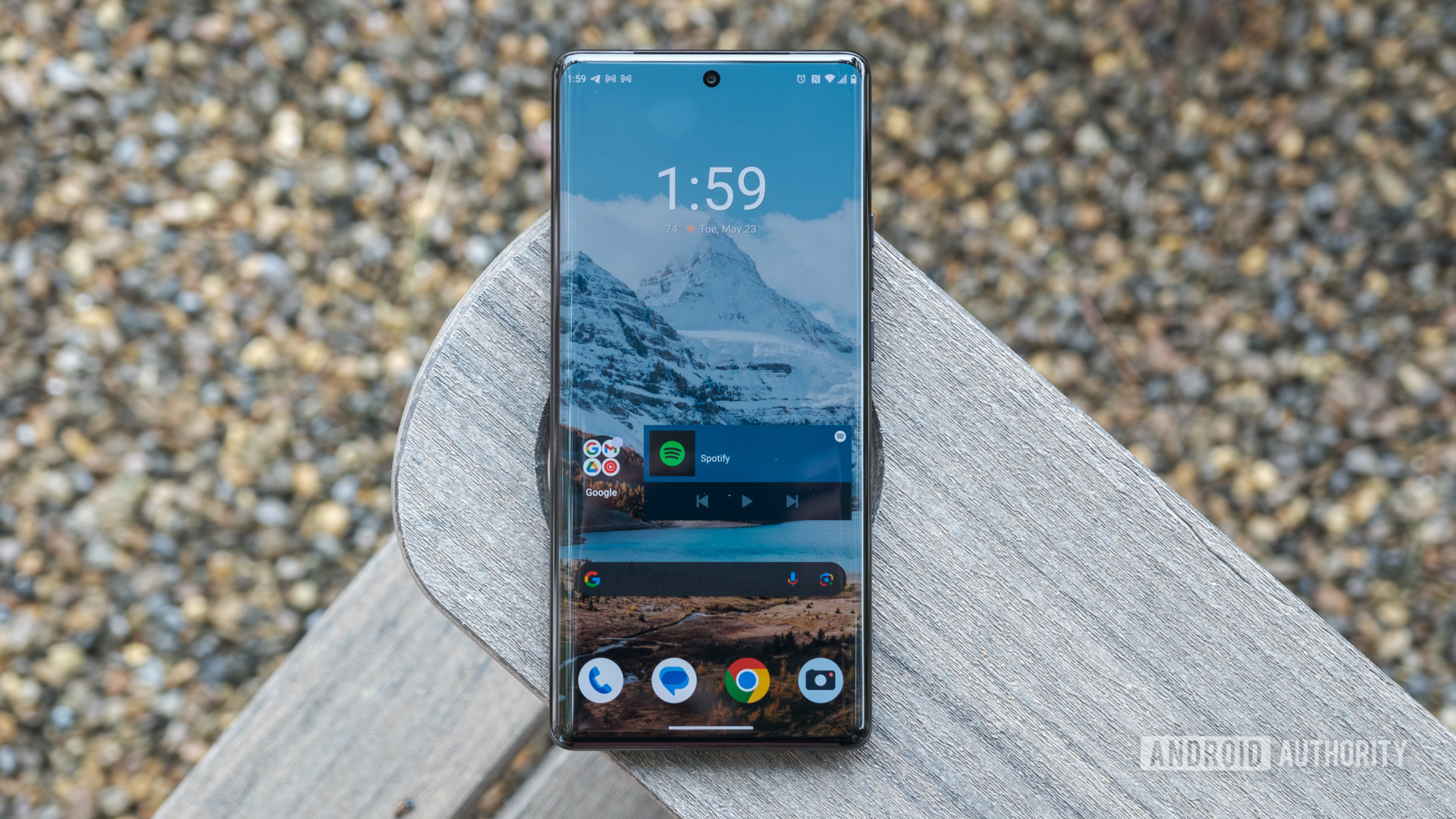
Seeking out for the most excellent VPN to guarantee your online protection at an reasonable cost? In today’s internet-driven world, ensuring your individual and monetary information from cybercriminals is more critical than ever. Character hoodlums, programmers, and other advanced reprobates cause considerable budgetary misfortunes to businesses and people around the world each year.
The great news is that a dependable VPN is one of the least demanding, cheapest, and most successful ways to defend your online exercises from undesirable arrange interlopers.
In any case, selecting the foremost appropriate VPN for your specific needs and budget can be challenging. Don’t stress — we’ve got you covered. Our comprehensive direct to the finest VPN administrations covers estimating, highlights, and all the data you would like to form an educated choice.
2023 Best VPN services for fast and reliable usage
1. NordVPN
- Country of registration: Panama
- Cost: $13 per month; $60 for the first year; $96 for the first two years
- Clients supported: Windows, MacOS, Linux, iOS, Android, Android TV, VPN routers
- Number of servers & locations: 5,200+ across 60 countries
- Number of simultaneous connections: Up to six
- Special features: Split tunneling
NordVPN isn’t free, but with three different encryption protocols (IKEv2/IPsec, OpenVPN, and NordLynx), it’s easy to see that this provider values your privacy. The company has also worked hard to build up its server network to include more than 5,200 servers in 60 countries around the world.
One stand-out feature that makes NordVPN a strong contender for the best VPN service out there is split tunneling. If you’re not familiar, split tunneling is the ability to whitelist some activities (such as gaming or streaming) to bypass the VPN and use the regular “clearnet” for better performance.
From protected DNS queries to a kill switch feature that automatically disables your connection when you lose sync with the VPN server, NordVPN wants you to know that your information won’t fall into the wrong hands. It’s also one of the most open VPNs about exactly what servers it offers in what countries, and provides 24/7 live chat support for questions.
The company has recently improved its platform support, adding dedicated apps for iOS and Android and thus overcoming its one weakness. You can also use it on six devices simultaneously. The NordVPN client provided one of the most attractive interfaces, and connecting to a server is straightforward and very quick, so much so it’s one of our top picks for the best Chrome VPN extension.
It’s also available for a host of devices and made our list for the best Fire TV Stick VPN. NordVPN can be installed in a VPN router as well, which expands the list of supported devices to include Chromecast, Raspberry Pi, PlayStation, Xbox, Nintendo Switch, and Fire TV (in other words, anything connected to your VPN router). During our testing, we also found it to be the fastest VPN in our NordVPN vs ExpressVPN comparison, so if it’s speed you’re after, look no further.
2. ExpressVPN
- Country of registration: British Virgin Islands
- Cost: $13 per month; $60 for six months; $100 per year
- Number of servers & locations: 3,000+; 160 locations across 94 countries
- Clients supported: Windows, MacOS, Linux, iOS, Android, Kindle Fire, Chrome OS, smart TVs, gaming consoles, VPN routers
- Number of simultaneous connections: Up to five
- Special features: Split tunneling
ExpressVPN’s “#1 Trusted Leader in VPN” claim may be a bit difficult to prove, but the service offers a compelling list of features nonetheless. It also constantly tries to make regular improvements in speed and simultaneous streaming capabilities, and with support for all major platforms (Windows, MacOS, Android, etc.), you won’t need to worry about compatibility. ExpressVPN shows up on a number of best VPN lists, including our list of the best VPN for Linux and the best VPN for Windows, so its relatively high prices seem justified.
The more than 3,000 servers are all well-placed throughout common travel destinations and urban centers. Any package will land you high-speed unlimited bandwidth and 24-hour customer service. With so many features, including bypassing ISP throttling, built-in threat protection, and split tunneling, it’s no wonder this vendor is considered the best VPN by many users — although you should note that ExpressVPN only supports up to five simultaneous connections with a single subscription, which is the lowest number of the services on our list.
But they also provide a workaround of sorts for that: If you install ExpressVPN on your router, your router can protect all of your devices (as the router itself only counts as one device towards your subscription), regardless of how many other devices are connected to that network hub. This way, you can have well more than five devices protected at once.
Setting up ExpressVPN and connecting to a VPN server was easy enough. Netflix complained about a proxy in use when we used the automatic configuration option, but it worked fine when we manually selected a local U.S. server, so it’s a working Netflix VPN. Amazon Prime Video played just fine, and our other internet tests were completed without issue.
3. Surfshark
- Country of registration: British Virgin Islands
- Cost: $13 per month; $48 for the first year; $60 for the first two years
- Number of servers & locations: 3,200 across 65 countries
- Clients supported: Windows, MacOS, Linux, iOS, Android, smart TVs, VPN routers
- Number of simultaneous connections: Unlimited
- Special features: Double VPN hop, 7-day free trial (for Android, iOS, MacOS)
It may not quite rank as the best VPN, but when it comes to price, Surfshark is hard to beat and is a great option for those looking to protect their privacy while minimizing costs. Surfshark is available for as cheaply as $60 for the two-year plan, and to sweeten the deal even more, that includes an unlimited number of simultaneous connections.
Feature-wise, Surfshark is fairly basic. This isn’t necessarily a problem if you don’t need any bells and whistles and just want a solid VPN on the cheap. In fact, the simple, no-nonsense interface, intuitive setup, and simple operation could easily be selling points if you explicitly don’t want to fuss with unnecessary complications. It supports a host of different devices, and it’s one of our top picks for the best Apple TV VPN, too.
That’s not to say it’s completely bare-bones, though; you get multiple encryption protocols to choose from (OpenVPN UDP or TCP, IKEv2/IPsec, and WireGuard) and a double VPN hop that lets you route your connection through two remote servers instead of one, adding an extra layer of security when desired.
Surfshark also works quite well with streaming services, although its speeds aren’t quite as good as other top VPN services like NordVPN and ExpressVPN. All in all, though, it’s the best VPN of 2023 for those on a budget, and especially for larger local networks such as family homes and offices.
4. IPVanish
- Country of registration: United States
- Cost: $12 per month, $54 for the first year, $80 for the first two years
- Number of servers & locations: 2,000+; 75+ locations across 50 countries
- Clients supported: Windows, MacOS, Linux, iOS, Android, Chrome OS, Fire TV
- Number of simultaneous connections: Unlimited
- Special features: Independently audited no-logs policy
IPVanish offers all the key features you could need from a VPN at a great price. With regular sales being part of the IPVanish experience, you can commit for a year at a very low cost, enjoying the protection that comes from a choice of more than 2,000 VPN servers across more than 75 different locations.
Besides offering extensive protection whether you’re browsing from home or using a public Wi-Fi hotspot, IPVanish also makes it simpler to avoid Deep Packet Inspection — a method used by ISPs to limit your internet speed at times. The VPN offers unmetered data transfer caps and there’s no limit on how many devices you can use it with so it’s incredibly flexible for high-volume users and larger local networks.
No logs are kept, plus there’s a choice of multiple connection protocols which is useful if you want to get more involved in your VPN settings. 24/7 customer support means the VPN is always on hand to help you out, too. Not that you should need it too often thanks to simple-to-use apps for all major platforms. It’s a great service and it’ll even help you avoid geo-restrictions on many of your favorite streaming apps.
5. AtlasVPN
- Country of registration: United States
- Cost: $12 per month; $49 for the first year; $72 for the first three years (plus three free months)
- Number of servers & locations: 750+, 37+ locations across 30+ countries
- Clients supported: Windows, MacOS, iOS, Android, Android TV, Fire TV
- Number of simultaneous connections: Unlimited
- Special features: Unlimited simultaneous connections for full-coverage protection.
AtlasVPN is a newcomer to the VPN industry, but it comes packed with secure and steadfast features that challenge even the big players. What’s amazing about this VPN is that it has a comprehensive free data plan that is one of the best on the market, and if you decide to upgrade to the faster, premium servers, then it only costs $49 per year or $72 for three years. While the server network may be considerably smaller than its competitors, it is a newer service with much more room to expand.
In terms of security, although the service is young, it didn’t cut any corners when constructing the server security. You can feel comfortable knowing you’re protected behind 256-bit encryption, WireGuard protocols, IPv6 leak protection, and a whole host of other features. Whether you’re browsing the internet casually, conducting important transactions, gaming, or streaming, you’ll find that AtlasVPN’s servers are ideal for you.
What’s more, Atlas now offers SafeSwap servers, a brand-new feature that enhances anonymity and security. With SafeSwap, you can rotate IP addresses without ever having to swap between VPN servers. As of now, AtlasVPN is the only provider that offers something like this. SafeSwap draws from a pool of IP addresses with outgoing traffic routed to the various addresses, yet you’ll experience no decrease in speeds — that’s super important if you’re streaming.
Last, but certainly not least, you can use AtlasVPN on all of your devices (if the client supports the VPN) and keep yourself protected wherever you are. With unlimited simultaneous connections, you don’t need to worry about getting booted off the VPN in case you reach the limit. The application is easy to install on all devices that even your grandparents could use AtlasVPN and stay protected online. The free data plan can help accommodate you or your family members to VPN services to better understand the inner workings of staying safe online.
6. Hotspot Shield
- Country of registration: United States
- Cost: $13 per month or $96 per year for Premium plan; $20 per month or $144 per year for Premium Family plan
- Number of servers & locations: 3,200+ across 70+ countries
- Clients supported: Windows, MacOS, Linux, iOS, Android, Chrome OS, smart TVs, VPN routers
- Number of simultaneous connections: Up to five, or up to 25 with Premium Family plan
- Special features: Gigabit speeds, free speed-capped basic plan, 45-day money-back guarantee, free 7-day trial
Speed can be a limiting factor with even the best VPN, and Hotspot Shield — a relatively new player in the virtual private network space — sought to make that problem its main focus. With up to gigabit speeds, we can safely say that Hotspot Shield seems to have succeeded in that endeavor.
The virtual private network was named the fasted VPN in 2019 and 2020 by Speedtest.net, too, so that doesn’t appear to be mere marketing. But Hotspot Shield isn’t a one-trick pony and has more to offer than just fast speeds. Its list of features also includes military-grade encryption and unlimited bandwidth (at gigabit speeds, mind you).
Hotspot Shield is also very simple to set up and use, but we’d like to see a few more customization options, such as control over encryption protocols. This is part of the deal you get with this VPN, though, as Hotspot Shield utilizes its own proprietary “Hydra” encryption protocol which the company claims is what makes it so fast. That’s just the nature of this beast, it seems.
Another consideration, and a potential drawback, is that as with ExpressVPN, you’re limited to five simultaneous connections per subscription. If you accept these limitations and can deal with some compromises in favor of speed, though — perhaps you’re looking for the best VPN for gaming or the best VPN for Kodi — then Hotspot Shield is an excellent choice that lives up to its promise of speed.
And in the event that you find it’s still not snappy enough for your digital lifestyle, Hotspot Shield also offers a VPN free trial. New subscribers get an extended 45-day money-back refund period, which is the most generous guarantee on our list. There’s also a free VPN plan, although speeds are capped at 2Mbps.
7. PrivadoVPN
- Country of registration: Switzerland
- Cost: $11 per month; $60 per year; $48 for two years
- Number of servers & locations: 320+; 55+ physical locations across 45+ countries
- Clients supported: Windows, MacOS, Linux, iOS, Android, Fire TV, Android TV, VPN routers
- Number of simultaneous connections: Up to 10
- Special features: P2P transfers, SOCKS5 proxy support, free data-capped basic plan
With VPNs, it’s all about location, location, location. PrivadoVPN is a Swiss company and is thus free from the laws of the U.S. and the European Union. Switzerland has pretty robust privacy laws, as well. It’s also not a member of the “fourteen eyes surveillance network,” so user traffic isn’t logged and passes through privacy-friendly countries. That means you needn’t worry about your true IP address being revealed.
Interestingly, PrivadoVPN operates one of the smaller server networks of all the providers on our list, measuring in at more than 320 servers spread between 58 physical locations in 47 countries, but that doesn’t preclude it from being a contender for the best VPN of 2023. That’s because it only offers physical server locations not virtual ones because it is not willing to compromise the quality of its service so it can promote a higher number.
If routing around region-based content restrictions and other geographical hassles is your priority, you might be better served with a VPN that has a wider global server spread, such as ExpressVPN. Although, having said that, PrivadoVPN is a fraction of the cost and covers a large chunk of countries, so if the one you’re wanting to virtually jump to is on its list, then we’d recommend taking it for a spin.
PrivadoVPN has it where it counts, though, with several encryption protocols to choose from: OpenVPN, IKEv2, and SOCKS5. The addition of SOCKS5 proxy support is noteworthy, as it allows for fast and seamless peer-to-peer transferring of large files, which is something many VPNs shy away from. This makes PrivadoVPN perhaps the best VPN service for peer-to-peer file transfers if that’s your primary use case for one of these services.
It’s not the cheapest VPN on our list, although that’s offset by the fact that you can use the VPN on up to ten devices simultaneously. There’s also a free app-based package that gives you 10GB of bandwidth per month.
8. CyberGhost
- Country of registration: Romania
- Cost: $13 per month; $42 for six months; $57 for two years (plus three free months)
- Number of servers & locations: 7,700+; 500+ locations across 90+ countries
- Clients supported: Windows, MacOS, Linux, iOS, Android, smart TVs, Xbox, PlayStation, VPN routers
- Number of simultaneous connections: Up to seven
- Special features: P2P support, 45-day money-back guarantee, free trial
With more than ten million active users and over 7,000 servers spread across the globe, CyberGhost is a giant in the VPN space. It’s also one of the most versatile virtual private networks out there, both in terms of supported devices/platforms as well as what activities it’s useful for.
CyberGhost VPN is compatible with computers, mobile devices, smart TVs, and even gaming consoles, and one great feature of the VPN is that it will automatically connect you to the best server for whatever you’re doing at the moment. That’s a vital consideration for bandwidth-heavy activities like gaming and streaming.
Another feather in the CyberGhost cap is that it supports peer-to-peer file transfers (read: It’s good to go for torrenting, and as we mentioned, it’ll select the best server for it so you get the fastest upload/download times). The interface is great, too, particularly on the computer. It gives you complete control and lots of configuration options including preferred server setups for your most-used programs and apps.
For encryption protocols, CyberGhost supports OpenVPN, IKEv2, and WireGuard, wrapping your connection in AES 256-bit encryption to keep your data and IP address hidden. CyberGhost is based in Romania and has a no-logs policy, and while this should keep you safe from certain prying eyes, this hasn’t been independently audited.
If that’s not a deal-breaker, CyberGhost is a strong contender for the best VPN of 2023 (take a look at our NordVPN vs CyberGhost comparison for more information on how it stacks up to the best) if you’re looking for the sweet spot between versatility and price. A limited-time introductory offer lets new subscribers grab their first two years of service for $57, which averages to just over $2 per month.
9. PureVPN
- Country of registration: Hong Kong
- Cost: Starting at $55 for the first two years
- Number of servers & locations: 6,500+, 96+ locations across 78+ countries
- Clients supported: Windows, MacOS, Linux, iOS, Android, Chrome OS, smart TVs, VPN routers
- Number of simultaneous connections: Up to 10
- Special features: P2P support, split tunneling, premium add-on features
With a name like PureVPN, this virtual private network had better offer some viable protection — and it does. The software’s hallmarks lie in its ability to connect to a mélange of services for different activities, with wide compatibility with various devices and software interfaces.
The service starts at $55 for two years, making PureVPN another one of the best cheap VPNs on our roundup. That subscription includes port forwarding, multiple encryption protocols (PPTP, SSTP, L2TP/IPSec, IKEv2, and OpenVPN UDP/TCP), malware blocking, P2P support, and an audited no-log policy. You can also get some premium add-ons like encrypted file transfers and a password manager at extra cost.
As with any good virtual private network service, PureVPN will prevent websites from viewing your personal IP address, thus preventing others from identifying you or your geographic location. And with more than 6,500 servers on six continents, you won’t be at a loss for worldwide connection points to choose from.
Like NordVPN, PureVPN features split tunneling that allows you to whitelist certain activities you don’t need or want to go through the VPN, allowing you to use online services and browse the web through the VPN and on the clearnet simultaneously. PureVPN also offers you a personal IP address for you to use with certain sites and services — a good idea for those that require logins.
10. TunnelBear
- Country of registration: Canada
- Cost: $10 per month; $60 per year; $120 for three years
- Number of servers & locations: 1,000+, 49 countries
- Clients supported: Windows, MacOS, iOS, Android
- Number of simultaneous connections: Up to five
- Special features: Free data-capped basic plan available
Our second-to-last pick isn’t as feature-rich as the others listed on our best VPN of 2023 roundup, but it’s nonetheless worth a mention if you’re looking for another no-frills (read: cheap) virtual private network that doesn’t bog you down with features you don’t need. TunnelBear puts ease of use and newbie-friendliness front and center. If you’re new to VPNs and find all this a bit intimidating, this big bear might be the one for you.
The main appeal of TunnelBear is simplicity and ease of use. You don’t have to fuss around with choosing encryption protocols or any other complicated setup. That’s bad news for advanced users who want more control and customization options, but it’s great for average folks who don’t want or need all that stuff getting in the way. TunnelBear does what it needs to do with good encryption, a kill switch, and a no-logging policy, with the added benefit of full yearly independent audits that the company releases to the public.
That simplicity does, however, bring a couple of bear-sized caveats. Firstly, there’s no free VPN trial or money-back guarantee, which could be a non-starter for many who are new to the VPN game and don’t want to fully commit to a service right away. If this describes you, you’re probably better served with a VPN that has a 30- to 45-day refund period.
On the other hand, TunnelBear does have a limited free plan that stands in as a trial of sorts, but that won’t give you a good feel for what the VPN can actually do. The second drawback with TunnelBear — and this could be a doozy, depending on your needs — is that it’s not really optimized for streaming (and you can forget gaming). The server network is also relatively small.
If you can live with those limitations, though, then TunnelBear is a reliable and extremely user-friendly VPN that gets the job done for web browsing, online work, and general internet use. It’s one of the cheaper picks, too, so long as you spring for the $120 three-year plan which averages $3.33 per month.
11. Private Internet Access
- Country of registration: United States
- Cost: $12 per month; $40 per year; $79 for the first three years (plus three free months)
- Number of server & locations: 29,000+ across 84 countries
- Clients supported: Windows, MacOS, Linux, iOS, Android, smart TVs, VPN routers
- Number of simultaneous connections: Up to 10
- Special features: Publicly available source code, split tunneling, anonymous payments
Private Internet Access does everything you could want from a good VPN. It hides your IP address, protects your information, and scrambles your browsing activity using a variety of encryption methods including OpenVPN and Wireguard. Private Internet Access also has one of the largest numbers and selections of servers of all the VPN providers on our roundup.
The PIA client source code is also publicly available, leaving no doubts about how the software works (or whether or not there are any backdoors or other nasties lurking in the code). Other nice features include split tunneling, a kill switch in the event of a dropped connection, dedicated IP addresses, and anonymous payments when making online purchases.
We tested Private Internet Access using its Windows installer, which configures the VPN protocols and provides a simple utility in the taskbar to turn the VPN connection on and off. While the interface was spartan, the performance was excellent. Our test system consistently maintained over 110Mbps download and 19Mbps upload speeds with the VPN connection turned on, very close to our usual 125Mbps download and 20Mbps upload speeds.
On the downside, Netflix complained about a proxy and Amazon Prime Video wouldn’t play due to a geographical restriction. These errors occurred whether we used the automatic setting or selected a local U.S.-based server. However, Private Internet Access claims that users can get “unrestricted access to all the content you want” since their VPN service supports Netflix and “all other major streaming services.











